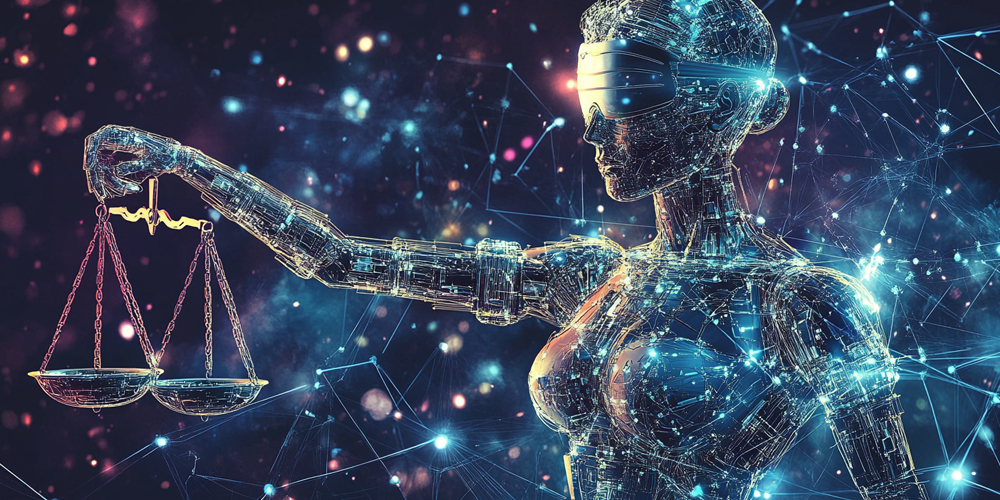Protecting Personal Data: Best Practices for AI Development
In our rapidly evolving digital landscape, protecting personal data has become crucial. With the rise of artificial intelligence (AI), the debate surrounding ethics and privacy is more relevant than ever. Organizations increasingly rely on AI technologies to enhance their operations. However, the consequences of mishandling personal data can be severe. This article explores best practices for ensuring data privacy during AI development.
Understanding the Importance of Data Protection
Data protection refers to the processes and practices aimed at safeguarding personal information. In the context of AI, personal data can include anything from names and addresses to medical records and online behavior. For AI systems to function effectively, they often require access to large datasets. However, this necessity raises significant ethical concerns.
First, it is essential to recognize why data protection matters. When individuals share their information, they trust organizations to handle it responsibly. A breach of this trust can lead to negative consequences, including reputational damage and financial loss. Moreover, privacy violations can affect individuals on a personal level, causing distress and anxiety.

Key Regulations Impacting AI and Data Protection
A range of regulations impacts how organizations must handle personal data. Compliance with these laws is not just a legal obligation but also a moral one. Two significant regulations to consider include:
General Data Protection Regulation (GDPR)
The GDPR is a comprehensive data protection law in the European Union. It sets out strict guidelines for the collection and processing of personal data. Organizations must obtain explicit consent from individuals before using their data. Failing to comply can result in hefty fines, making it imperative for businesses to prioritize data privacy.
California Consumer Privacy Act (CCPA)
The CCPA provides California residents with rights regarding their personal information. This includes the right to know what data is collected and to whom it is sold. Companies must offer a clear opt-out option for consumers. As more states consider similar laws, compliance becomes crucial for AI developers.
Best Practices for Protecting Personal Data in AI Development
Implementing best practices can help safeguard personal data throughout the AI development process. Here are essential strategies to consider:
1. Data Minimization
Data minimization is a principle that encourages organizations to collect only the data they genuinely need. Many AI systems often require vast amounts of data to perform effectively. However, collecting extra data increases risks. Organizations should evaluate what data is necessary and avoid excessive collection.
2. Anonymization Techniques
To protect individuals’ privacy, developers should utilize anonymization techniques. Anonymization involves removing personally identifiable information from datasets. This way, even if data is breached, it cannot be traced back to individual users. Techniques such as data masking and pseudonymization can help achieve this goal.
3. Strong Encryption Practices
Encryption is a vital tool for ensuring data security. By converting data into a secure format, encryption makes it unreadable to unauthorized users. Developers must implement strong encryption protocols both during data transmission and storage. This step adds a crucial layer of protection for personal information.

4. Conduct Regular Audits
Regular audits of data systems can help identify vulnerabilities. Organizations must establish a schedule for auditing their data processing activities. During these audits, developers should assess compliance with legal requirements and internal policies. This proactive approach can help prevent potential data breaches before they occur.
5. Implement Privacy by Design
Privacy by Design is an approach that integrates privacy considerations into the development process from the outset. This means that developers should consider privacy issues at every stage of development rather than as an afterthought. By adopting this approach, organizations can create technologies that respect and protect user privacy.
Educating Teams on Data Protection
Internal education plays a critical role in data protection. All team members involved in AI development must understand their responsibilities regarding personal data. Regular training sessions can help ensure everyone is aware of the latest privacy regulations and best practices.
Moreover, fostering a culture of accountability and transparency can empower employees. When team members recognize the importance of protecting personal data, they are more likely to prioritize it in their work. This attitude can significantly enhance overall data security.
Engaging with Stakeholders
Organizations should establish clear communication with stakeholders about their data protection policies. This includes informing users about how their data is being used and the measures in place to protect it. Open communication can foster trust and enhance the relationship between organizations and their users.
The Role of Technology in Data Protection
As technology advances, new tools for data protection emerge. Organizations should stay informed about innovative solutions that can enhance security measures. For example, emerging technologies like blockchain can help build more transparent and secure data management systems.
Furthermore, adopting AI-driven tools can streamline data protection efforts. For instance, machine learning algorithms can help identify anomalies in data access patterns, alerting teams to potential breaches. By leveraging technology, organizations can enhance their data security posture.
Conclusion: A Future Focused on Privacy
In conclusion, the importance of protecting personal data in AI development cannot be overstated. As organizations navigate this complex landscape, prioritizing best practices for data protection is essential. Compliance with regulations like GDPR and CCPA is only the beginning. By implementing strategies such as data minimization, strong encryption, and privacy by design, organizations can create responsible AI systems.
Moreover, fostering a culture of data protection through education and engagement with stakeholders can build trust. As we move into the future, the need for ethical AI will only grow. By protecting personal data, organizations can harness the power of AI while respecting and valuing user privacy.





